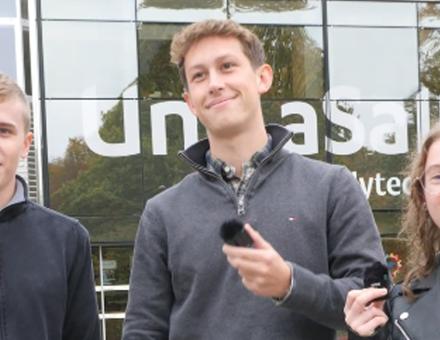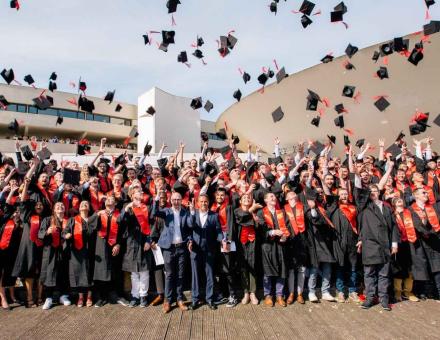The formalization of this partnership took place on December 6th on the UniLaSalle Rouen campus in the presence of Gilles Dreyfus, President and Co-Founder of Jungle, and Philippe Choquet, General Manager of UniLaSalle.
Faced with the increase in the world's population and the demand for food, natural resources are being depleted. Soils are shrinking and their fertility is deteriorating. Farmers are obliged to take up the challenges of agro-ecological, food and energy transitions that our societies are facing.
"What we like about these chairs is to approach issues that call for transversality. It's an approach that allows us to align our intelligence over a long period of time. Associating ourselves with Jungle calls on the expertise that our researchers use on our technological platforms, such as the latest 'Food & Agri CityLab'," indicated Philippe Choquet, Director General of UniLaSalle.
"Jungle's raison d'être is to secure the supply of plant crops for the food, cosmetics and perfumery sectors. Jungle, with its vertical farming concept, is one of the answers to tomorrow's agriculture. Why UniLaSalle? It's a school that is in line with our projects, with whom we speak the same language on R&D issues," emphasized Gilles Dreyfus, President and Co-Founder of Jungle.
Supporting the transition of territories with indoor agriculture
It is in this context that the merger of Jungle, a specialist in vertical farms, and UniLaSalle, a higher education and research school, was an obvious choice. The common objective is to consolidate the scientific references necessary to optimize production under controlled conditions. In more detail, it is a question of studying environmental factors, selecting and analyzing performances and comparing technical and economic data.
The stakes of indoor cultivation
A great diversity of productions are to be investigated according to the stakes. First of all environmental, by the question of reducing the use of water up to 90%, this system also responds to many other issues:
- Securing the income of farmers through the production of plants with high economic added value
- Feeding populations and fighting against global warming
- Securing supplies of raw materials
- Innovate and develop plant productions of nutritional, gastronomic and cosmetic interest






